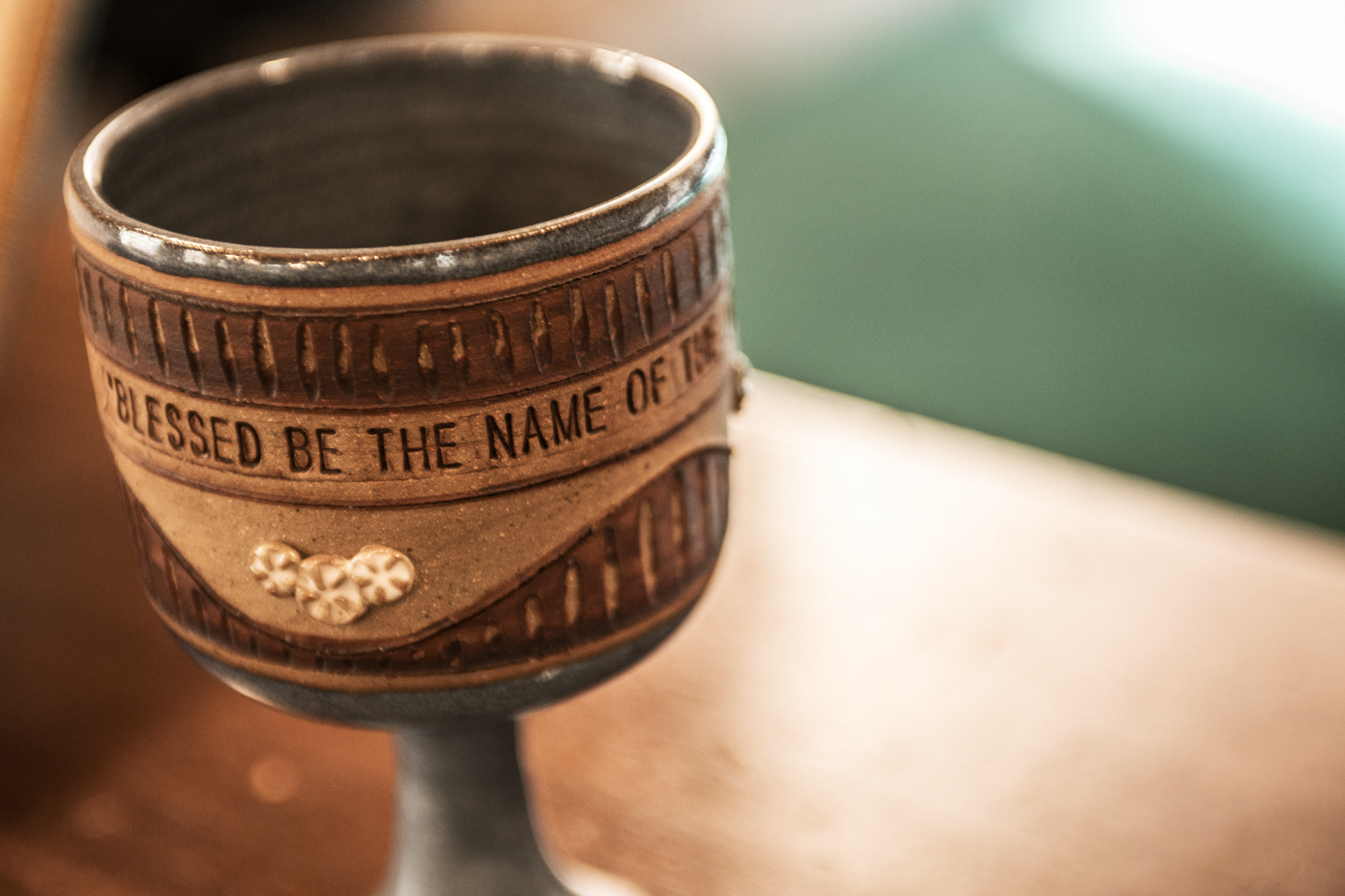Of Interest

Communion: Celebrating the Sacrament
of Christ’s Sustaining Presence
By James Ayers
For more than four centuries there have been two common explanations as to what the Lord’s Supper is all about:
1. The Roman version: The elements of bread and wine are transformed into the actual body and blood of Jesus. When we receive the sacrament, we are genuinely receiving Jesus.
2. The Anabaptist version: The elements of bread and wine are a memorial of Jesus’ death; they have no special power. When we receive the sacrament, we are remembering that Jesus died for us.
A respectable argument can be made in support of each of these views, but Presbyterians think both are incomplete. Each does contain a genuine insight – and misses the insight that the other view holds. In rejecting the opposing position, each makes an overstatement that leads it astray.
John Calvin, founder of our Reformed tradition, recognized that the Romanists were correct when they said that in the Eucharist we genuinely encounter Jesus, but mistaken when they said this happens because the elements of bread and wine are physically changed into Christ’s body and blood. He noted that the Anabaptists, in turn, were right that no physical change takes place in the bread and wine, but incorrect in supposing that the absence of physical change means nothing is happening.
Perhaps we have a hard time getting this because ordinarily we suppose material reality – the stuff that is made out of atoms – is the only reality there is. When the ancients taught us to say in the Nicene Creed, “being of one substance with the Father,” we may miss the nuanced way they said those words and suppose this means Jesus and the Father are made out of some physical stuff. The Creed explicitly rejects the materiality of God: “by whom all things were made” means that all the physical things are created, but God is not created. God is real, but God is not physical.
This, then, is the Presbyterian understanding of Communion: Is Jesus physically present in the elements of the Eucharist – have the molecules of bread been changed into molecules of the body of Jesus? No.
Is Jesus spiritually present in the elements of the Eucharist, authentically present in the non-atom-based substance with which he is con-substantial with God – that is, is he genuinely there to be received by us, and not just in our memories? Yes.
Receiving the Communion elements is taking the symbolic representation of the broken body and shed blood of Jesus into our inmost being, receiving the Jesus who died for our forgiveness and transformation. We depend on these elements for our very life.
It is a strong doctrine of Communion that we Presbyterians hold. The physical nature of the bread and the wine does not change. And yet Jesus is genuinely present here, as he promised, to sustain and strengthen his people. And we receive him into our inmost being in reliance on and in obedience to that promise.
Excerpted from: https://www.presbyterianmission.org/what-we-believe/communion/
The Triduum / Three Days
There should be a sense of continuity uniting the services of Holy Week, from Passion / Palm Sunday to the Resurrection of the Lord. The services of the Triduum (or Three Days) in particular — Maundy Thursday, Good Friday, and the Resurrection of the Lord — are really intended to be one whole event that stretches across three days.
Maundy Thursday – On Passion/Palm Sunday we celebrated the triumphant entry of Jesus into Jerusalem … and then turned with him to face the cross, where he gave his life for us and our salvation. Tonight we keep the feast that Jesus shared with his disciples on the night of his arrest, and we remember his new commandment to love one another even as he has loved us.
Good Friday – On Maundy Thursday we kept the feast that Jesus shared with his disciples on the night of his arrest, and we remembered his new commandment: to love one another even as he has loved us. This afternoon we turn to the cross, where Jesus gave his life for us and our salvation.
Easter Sunday / Easter Vigil – On Good Friday we witnessed the tragedy of Jesus’ suffering and death on the cross, where he gave his life for us and our salvation. Today, on the first day of the week, [or Tonight at the Easter Vigil] we gather at the tomb … only to discover that the stone is rolled away, and the grave is empty. Today [Tonight] we celebrate the good news of the gospel: Jesus Christ is risen!
Source: www.presbyterianmission.org//www/wp-content/uploads/notes_for_explaining_the_triduum.pdf
